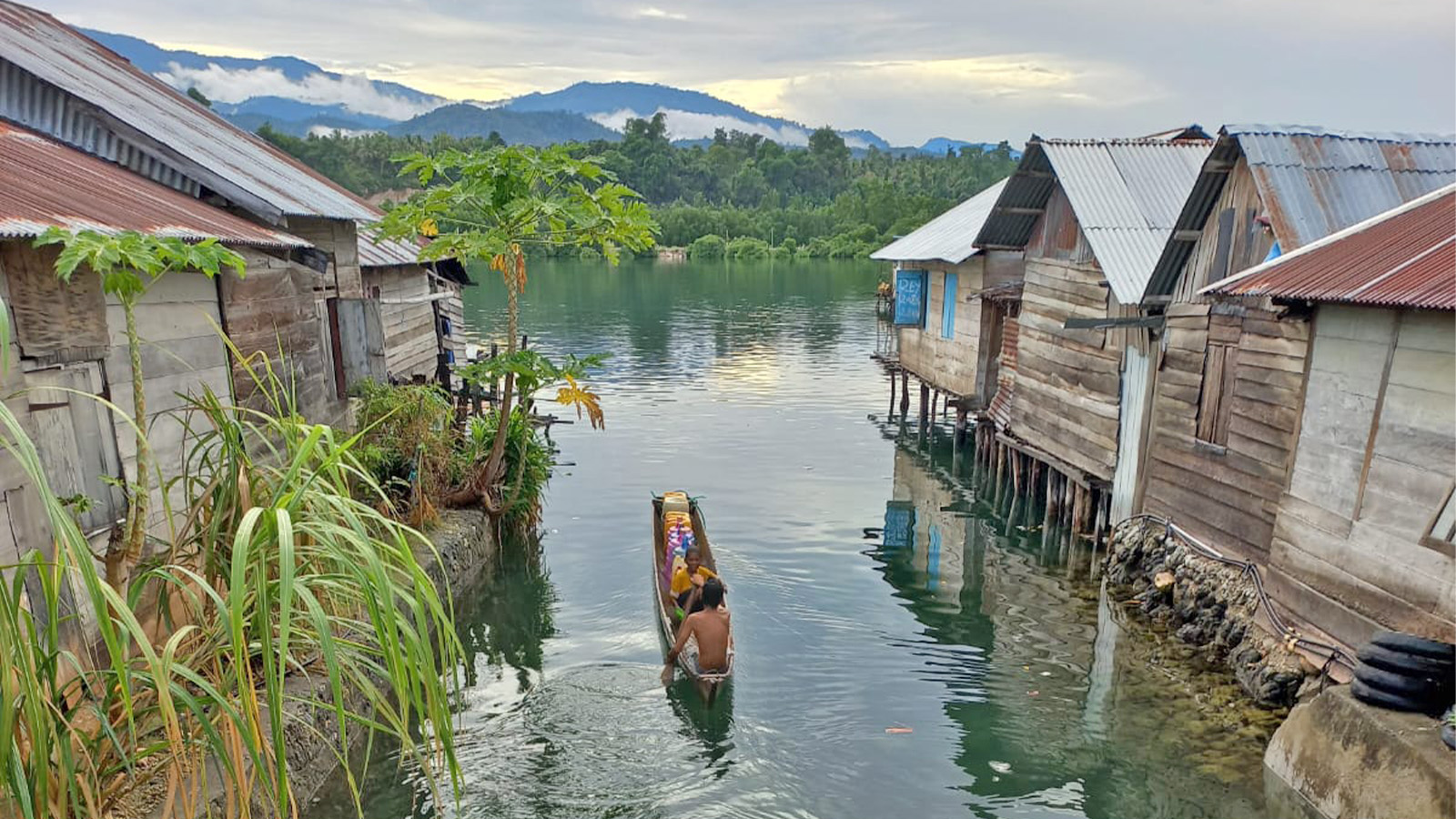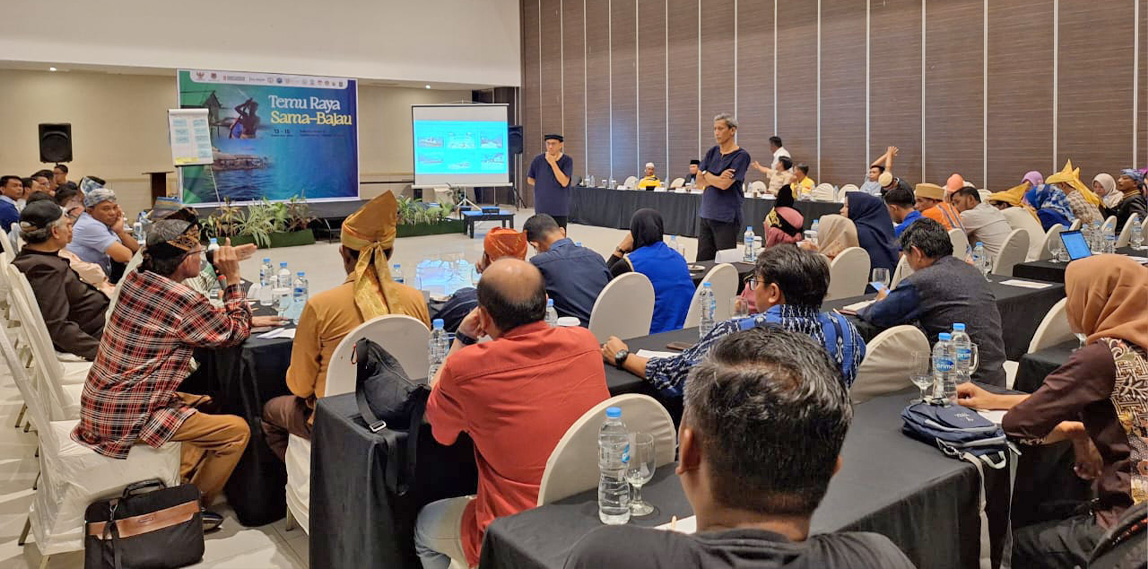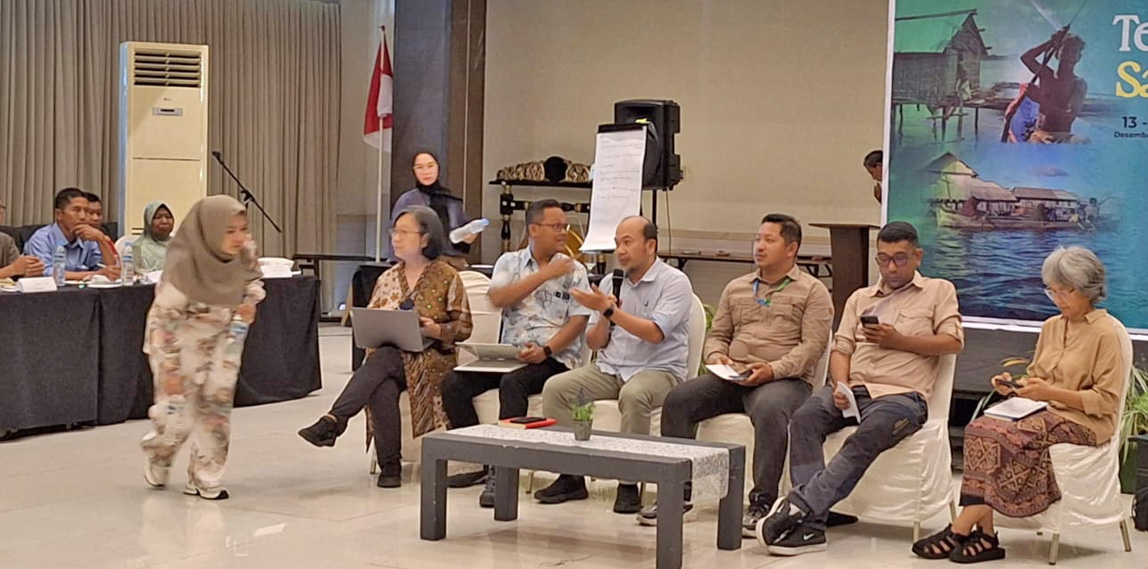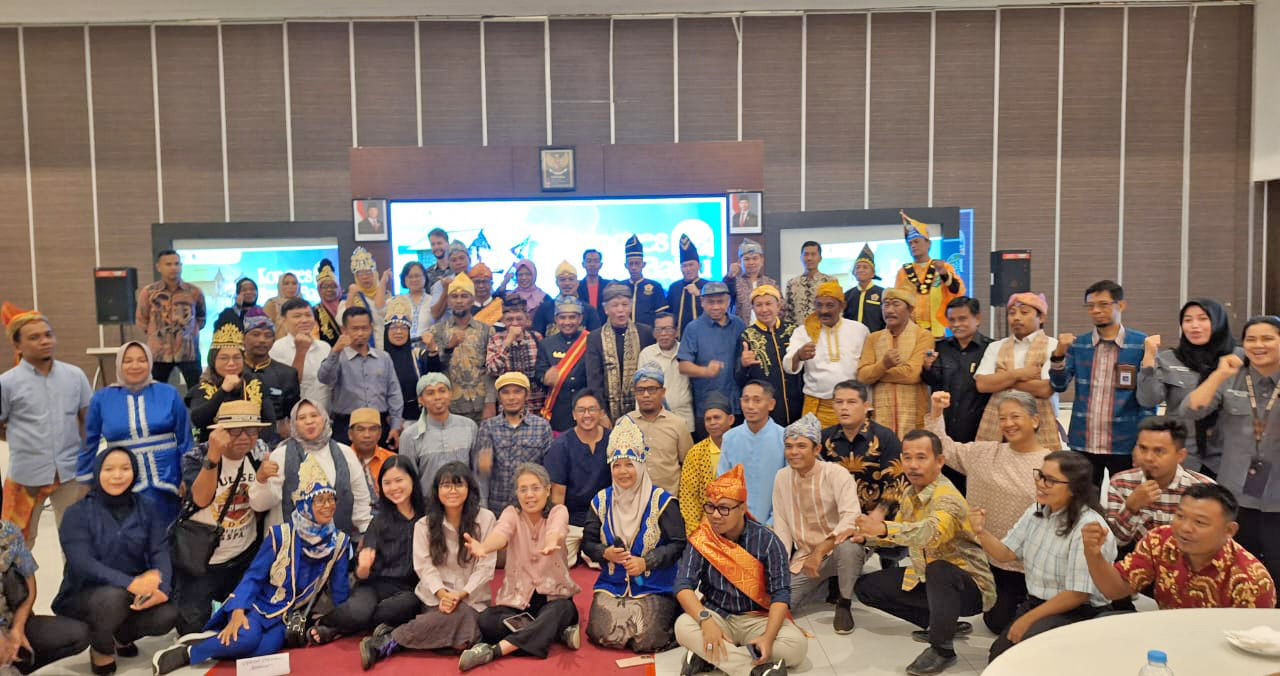
The atmosphere of the Bajau community in Luwuk. Photo by Sandra Moniaga
- admin
- 10 March 2025
- Feature
Charting the Course with the Sama Bajau
‘We are all “Danakang” in “Pasidakauang,” united as brothers within the Sama-Bajau community.’ This is a statement from the Luwuk Declaration 2024, aiming to address the challenges faced by the Sama-Bajau, perhaps more popularly known as the sea-gypsy communities.
For the first time, Sama-Bajau representatives from across the Southeast Asian countries came together. And for the first time, they discussed issues that are shared by their communities scattered throughout the region. Although coming from Indonesia, Malaysia, Myanmar, the Philippines, and Thailand, they face the common problem of not being recognized in their respective country’s legal systems.
The first Sama-Bajau Congress International Symposium of Sea Nomads in Southeast Asia was organized on 9 December 2024, taking place online to enjoin the participation of the widely spread communities. Additionally, as part of the Congress, the Ministry of Culture of Indonesia, together with the National Research and Innovation Agency (BRIN), and the Sea Nomads Contact Group (SNCG) organized the Lipu Celebes Festival, the Sama-Bajau Festival and Workshop, and the Sama-Bajau Congress in Luwuk Banggai, Central Sulawesi from 11 to 15 December 2024. Participants included representatives from the Banggai Regency Government, Central Sulawesi Province, the Andaman Project at Chulalongkorn University, and Samdhana Institute.

Traditionally nomadic, the seafaring communities have not been bound or limited by the geopolitical delineations of the countries they traversed. However, over the years, they have partially adapted to the lifestyle of the developing nation-states around them. Ariando and Adhuri (2022) have classified them according to how their choice of dwelling has evolved – those who live in houseboats and are still largely nomadic, those who live in a house built on water, and those who have chosen to build their homes on land.
Partly because of the characteristics of their chosen dwellings, tenurial systems, even those recognizing the communal rights of Indigenous Peoples, don’t include them. In Indonesia, the Lingga District Regulation No.4 of 2022, or the Empowerment of Sea Tribe Communities, and the Building Use Rights certificates in Mola Village, Southeast Sulawesi have so far been the only laws that recognized the Sama-Bajau communities. However, the latter Building Use Rights, an effort of the National Land Agency to recognize the customary rights of the Bajau community in Kampung Mola has not been approved by the Kementerian Kelautan dan Perikanan (KKP) or the Ministry of Marine Affairs and Fisheries. The latter argued that they oversee the regulation of the tenure system in coastal and marine areas, not the National Land Agency. As a compromise, the KKP approved the issuance of Building Rights Title for the owners of houses on the water in Kampung Mola. However, it is not the same as “hak ulayat” or customary rights for the Bajau.

Because of the lack of legal recognition, the Sama-Bajau communities find it difficult to access important services such as education, healthcare, employment, and humane living conditions. Those living on water, for example, don’t have property rights.
It has also been difficult to apply laws specific for Indigenous Peoples to the sea nomads as according to them, their customary territory is the entire ocean and their customary institution only recognizes the ‘punggawa.’ The punggawa doesn’t take a role in comprehensive governance and only takes care of marriages and divorces and relationships between residents.
The Congress participants had different views on th issues raised, but agreed to have a common platform that would have the same advocacy agenda and strategies.
Going forward, an action blueprint has come out of the gathering. It was recognized that the seafaring communities have great knowledge and skills on maritime culture which can contribute to environmental efforts, especially in saving coastal and marine resources. However, despite efforts from academics and NGOs in the communities’ economic development, not much has been done towards a systematic support for policy advocacy. A joint roadmap thus needs to be created, involving a multi-stakeholder network that includes ministries, institutions, and the regional government.

This roadmap will focus on developing the capacity of legal assistants to support coastal and marine nomadic communities in participatory advocacy processes and to formulate policies aimed at preserving the Sama-Bajau tribe, protecting marine natural resources, and specifically addressing global warming.
Additionally, it will prepare pilot projects for three categories of the Sama-Bajau community: those living on boats, those residing along the coast and small islands, and those living in semi-sea and land environments. These projects will be tailored to the needs and willingness of the community, as well as the openness of the local government. Finally, the roadmap will involve non-governmental organizations (NGOs) that work with the Sama-Bajau community to enhance these efforts.
Indigenous movements in Indonesia have been consistent and effective in fighting for their rights, and this can be a learning resource for marine nomadic communities. This is an opportunity for them to join an already strong and established movement.